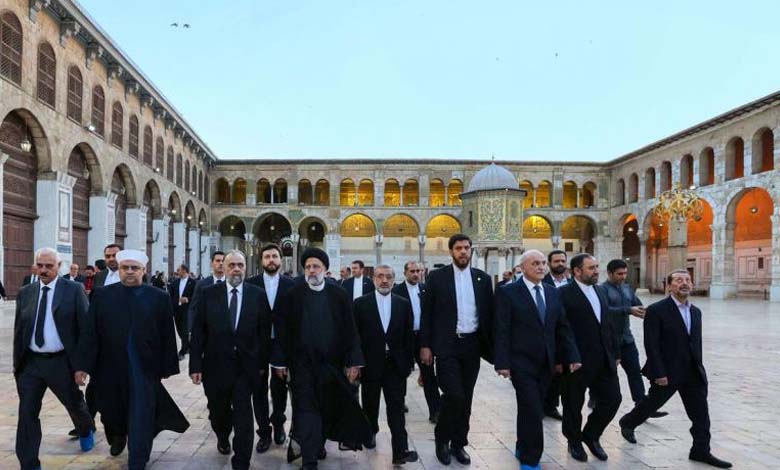The Atlantic initiative enhances Morocco’s chances in competition with Turkey and Iran
Turkey seeks to bolster its influence in the African Sahel region through arms deals, while Tehran has signed cooperation agreements with Burkina Faso in energy, urban planning, higher education, and construction

With France’s withdrawal from the Sahel region, Morocco, Turkey, and Iran are intensifying their initiatives toward the ruling military regimes in the area, seeking to diversify their partners. Rabat attaches great importance to cooperation with regional countries and building bridges as part of its commitment to its African depth. Meanwhile, the initiative launched by Morocco aims to facilitate access to the Atlantic Ocean for Niger, Burkina Faso, Mali, and Chad, for strategic partnerships.
From fighter jets to combat helicopters, the director of the Turkish aerospace and defense agency presents an attractive catalog to military regimes combating jihadist groups.
The Foreign Minister of Burkina Faso reminds that the region’s armies suffer from a chronic shortage of equipment. For them, it’s about developing self-capabilities to reduce dependence on foreign forces, especially France and other Western countries, which have been deployed in the region for over a decade and refuse to provide military equipment to armies accused of human rights violations.
As French forces pack up, drones provided by Turkey have become essential for Mali and Burkina Faso’s armies engaged in an unequal conflict.
These strikes have led to significant collateral civilian casualties, according to a Human Rights Watch report in January, which the authorities denied.
In early 2024, Mali received a new batch of Turkish Bayraktar drones, highly prized for their performance. The CEO of the manufacturing company was decorated in Ouagadougou in April 2022 on the orders of Burkina Faso’s powerful captain Ibrahim Traoré.
Federico Donelli, a political expert and author of a book on Turkish influence in Africa, explains that the defense sector is the driving force of Turkish foreign policy in African countries.
While Moscow establishes itself as a key ally of military regimes in the Sahel region, Ankara adopts an opportunistic policy, seeking to position itself as an alternative to Europe and Russia.
The Italian think tank “Ispi” notes that former Turkish Foreign Minister Mevlüt Çavuşoğlu was “the first high-level international figure to meet with the Military Council in Mali after the August 2020 coup.”
Ankara also adopts a conciliatory approach with the Military Council in Niger, a key country for Turkey due to its proximity to Libya, where Ankara has many interests.
Morocco has launched a competing initiative and announced in September that it was ready to provide road, port, and rail infrastructure to Mali, Burkina Faso, Niger, and Chad. These first three countries announced their withdrawal from the Economic Community of West African States at the end of January.
Morocco announced in November an international initiative aimed at facilitating access for regional countries to the Atlantic Ocean, and Mali, Niger, Burkina Faso, and Chad expressed their readiness to participate in the program, representing a historic opportunity for their economic takeoff.
A government official in Niger said that Turkey has military capabilities, adding that “we have had excellent relations with Morocco since our independence, and this is more linked to economic development.”
Relations between Niger and Morocco are experiencing remarkable momentum, and Niamey’s participation in the Atlantic initiative launched by King Mohammed VI is a recognition of Moroccan sovereignty over the Sahara.
Morocco and Turkey, which have long enjoyed influence in the region, may face new competition from Iran, which has intensified its initiatives since 2020 and the coups in Mali, Burkina Faso, and Niger.
In October, Tehran signed several cooperation agreements with Burkina Faso, particularly in the areas of energy, urban planning, higher education, and construction.
Thierry Coville, an economic expert at the International Institute of Relations and Strategies, explains that Iran’s African policy is characterized by a “revolutionary language and logic rooted in the Third World and opposed to imperialism,” with “clear diplomatic arguments” for countries separating from the former French colonial power.
However, he adds that “the Iranians sign dozens of agreements, and none of them succeed, they do not have the necessary funding to support the agreements, nor for serious competition with Turkey or Saudi Arabia.”
Iran, which has increased its production of enriched uranium to 60% according to the International Atomic Energy Agency, could eventually target Niger’s uranium reserves, currently exploited by the French company Orano? A government official in Niger responds: “These are our resources, and we can sell them to whomever we want.”












